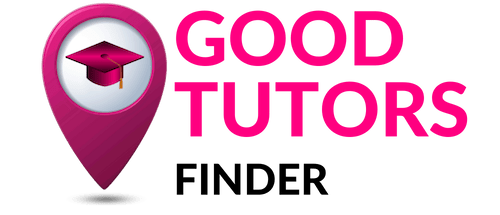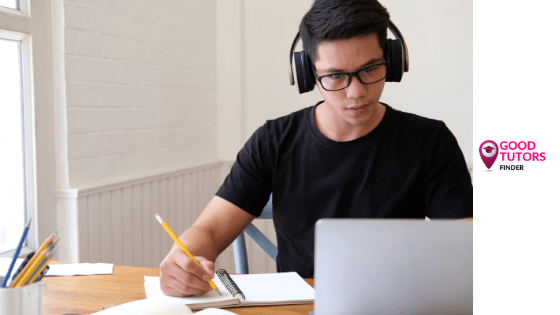The Benefits of the IB
What Is IB and What are the Benefits of the IB?
For more than 40 years, the International Baccalaureate has prepared students to compete and cooperate on a global stage.
According to its mission statement, the International Baccalaureate (IB) Organization “aims to develop inquiring, knowledgeable, and caring young people who help to create a better and more peaceful world through intercultural understanding and respect” (International Baccalaureate Organization, 2007). The IB Diploma Program was developed in the 1960s at the International School of Geneva. Students pursuing an IB diploma take six major subjects in 11th and 12th grade. These must include one of around 70 first languages, one of 21 second languages, and at least one subject from each of the following categories: individuals and society, experimental sciences, and mathematics. An arts subject is optional but encouraged. Three additional requirements are central to the program: the extended essay, which develops research skills; a theory of knowledge course, which develops critical-thinking skills; and involvement in activities promoting personal development in creativity, action, and service.
At the end of the program, students pursuing the full diploma take standardized written examinations to determine whether they have met the program’s requirements. These exams are complemented by in-school assessment tasks that are either initially graded by teachers and then checked by external IB moderators or sent directly to external examiners for grading. Assessment tasks include written assignments, oral presentations, portfolios, research projects, practical work, and examinations. Student results are determined by performance against set standards.
Below are the benefits of the IB.
An Answer for Globalization
Thanks to technology, the world is now a highly interconnected playing field, with the developing nations as players. Bringing an international perspective to education will be essential to ensuring high standards and equitable outcomes for all students.
- Insisting that all students study at least one second language. (see Top 8 tips to learn a language)
- Drawing on examples from different countries.
- Urging students to consider multiple perspectives.
- Developing an appreciation of other cultures and religions.
- Addressing global issues and providing possible solutions.
- Encouraging student and faculty exchanges with other countries.
An Answer for the 21st Century
- Creativity and innovation.
- Self-discipline and organization.
- Leadership.
- Teamwork.
- Cross-disciplinary knowledge.
- Communication skills.
- Analytical reasoning.
- Real-world problem-solving skills.
- Inquiry: acquiring the skills necessary to conduct purposeful, constructive inquiry and research and to become independent active learners.
- Knowledge: exploring concepts, ideas, and issues that have global relevance; using a significant body of knowledge across a range of disciplines.
- Critical thinking: applying thinking skills critically and creatively to approach complex problems and make reasoned decisions.
- Communication: receiving and expressing ideas and information confidently and creatively in more than one language and in a variety of modes.
- Risk taking: approaching unfamiliar situations with confidence; exploring new roles, ideas, and strategies; being courageous and articulate in defending beliefs.
- Principles: having a sound grasp of the principles of moral reasoning, integrity, honesty, fairness, and justice.
- Caring: showing empathy, compassion, and respect toward others; having a personal commitment to action and service.
- Open-mindedness: respecting the views, values, and traditions of other individuals and cultures; seeking and considering a range of points of view.
- Balance: understanding the importance of physical and mental balance and personal well-being; demonstrating perseverance and self-discipline.
- Reflectiveness: giving thoughtful consideration to personal learning and development; analyzing personal strengths and weaknesses constructively.
- Natural sciences: Is science, or ought it to be, value-free? What implications does your answer have for the regulation of science? For example: Who should decide whether particular directions in research are pursued? Who should determine priorities in the funding of research?
- History: To what extent can distinctions be made between factual report, biased interpretation, and calculated distortion? Can history be used for propaganda? If so, how?
- The arts: What knowledge of art can be gained by focusing attention on the artist … the work itself … the audience’s response … the context?
The act of framing these open or generative questions causes teachers to focus on why they are teaching particular information; this helps them ensure that the knowledge and skills they are teaching are relevant and meaningful.
Prepared for the Future
The International Baccalaureate is well positioned to respond to the global challenges of the 21st century. As people increasingly wake up to what it’s going to take to compete in this new flat world, the IB is increasingly viewed as one of the best education systems to prepare young people for that future. Our programs are shaped around creating a better and more peaceful world with a core determination to develop students who can create this better world through intercultural understanding and respect.
You might also be interested to take a look at our recent blogs for more IB study guides. Below you’ll find more editor and user recommended study resources, guides and learning tutorials that will help you learn more and improve your study skills.
If you like to provide your child with a trained tutor after school and during holidays who can help with structure and organization, we have just what you need. At Good Tutors Finder, we only have hand-picked tutors who are well versed in these and other strategies and can apply them, whether they are in IB Diploma, IGCSE, AP, or lower grades. Mathematics, Science, Physics, German, French, English, and more, no matter which subject is difficult, our tutors can help out.
Our tutors are available everywhere in The Netherlands, including Rotterdam, Amsterdam, The Hague, Eindhoven, Utrecht, Wassenar, and all other cities.
Find out more and book your tutor today!




